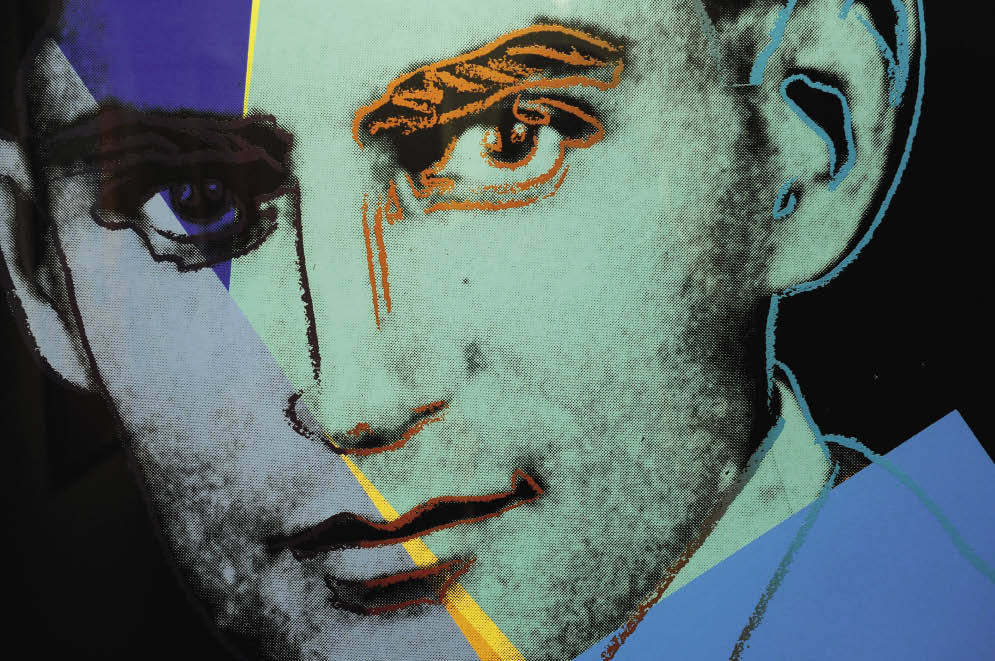Jeremy Treglown finds something for everyone in Penguin’s new Mini Modern series
It’s a cool silver-grey in colour, weighs two and a half ounces and fits flexibly into your pocket. It opens easily to reveal words imaginatively chosen and arranged in sequences so absorbing and surprising that they can make you miss your bus stop. It costs £3.
Penguin’s Mini Moderns — there are 50 of them, to celebrate the 50th anniversary of Penguin Modern Classics — include a story in which a boy uses something very like Skype to call his mother and tell her he would like her to come and see him. She protests: ‘But I can see you!’ But it’s not the same through ‘the Machine’, he complains. ‘I see something like you in this plate, but I do not see you. I hear something like you through this telephone, but I do not hear you. That is why I want you to come.’
The satire might seem a little laboured, except that it was written more than a century ago. ‘The Machine Stops’ is by E. M. Forster and is one of many finds offered by this imaginative series, which — like its predecessor Penguin Pocket Classics — is partly a programme of trailers for good international 20th-century writing (not to speak of books published by Penguin) but also much more. Each Mini Modern is complete in itself — entire stories and novellas, no extracts — and, taken together, they give a refreshing new account of fictional modernity.
Most of the big names are here, of course: Kafka with his hideous 1914 fantasy of mechanised torture and execution, ‘In the Penal Colony’; Conrad, Kipling, Joyce, Virginia Woolf, Lawrence, Katherine Mansfield, Borges. But among texts by these familiar 19th-century-born stylistic adventurers are some which are little known and which Penguin has only recently acquired. Robert Musil is represented by nine astonishing short pieces first published in translation by a provincial American small press in the 1980s; Stefan Zweig by a gripping Nazi-era novella about two chess players, one of whom has learned the game as a way of dealing with being interrogated.
The series also escapes conventional notions of modernity. There’s plenty of strong storytelling, for example. G. K. Chesterton is here with two of the Father Brown stories, strong on suspense, broad in characterisation and enjoyably haphazard in terms of plausibility. In ‘The Strange Crime of John Boulnois’, a man is discovered dying of wounds in the large formal garden of a remote country house. One of those present is sent off to find a doctor and a priest, both of whom prove to be instantly at hand.
Plenty of humour, too, and of different kinds — Saki and Wodehouse, Dorothy Parker and, among later writers, the deadpan Donald Barthelme. The latter’s story, ‘Some of Us Had Been Threatening Our Friend Colby’, begins with those words and continues ‘because of the way he had been behaving. And now he’d gone too far, so we decided to hang him’ — an opening carried through with calm comic resolve. The mid-century vogue for a more folksy, under- lyingly sinister form of whimsy is found in five pieces by Ludmilla Petrushevskaya (‘There once lived a father who couldn’t find his children’; ‘There once lived a woman who was so fat, she couldn’t fit in a taxi’). And there’s a vein of plain social realism, traced through a number of writers ranging from Carson McCullers to Margaret Drabble.
Something for most tastes, then —I haven’t mentioned M. R. James, H. P. Lovecraft, Jean Rhys, Malcolm Lowry, Robert Coover. Something, also, for people who, having found a new favourite, want a little more. True, that little more rarely extends to basic background information. Readers already hooked by Hans Fallada’s Alone in Berlin, for example, will find sterner forms of addiction anatomised in his ‘Short Treatise on the Joys of Morphism’ and ‘Three Years of Life’, persuasively translated by Michael Hofmann. We’re told that these stories first appeared posthumously but, given the extraordinariness of Fallada’s marginal life in Nazi Germany, it’s frustrating not to be given any idea of when and where they were written.
Still, it’s time to give up sending birthday cards, which cost more. Choose a Mini Modern for anyone you love, including yourself. Eileen Chang’s quirky novella about a Chinese middle-class homme moyen sensuelle, ‘Red Rose, White Rose’, would be one of 50 good places to start.






Comments